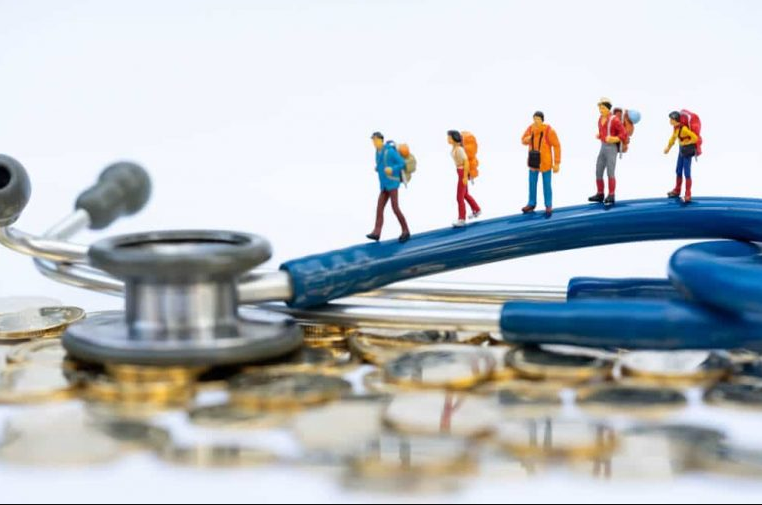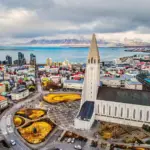Planning the trip
Before embarking on a solo adventure, it's essential to carefully plan your trip. This includes choosing a destination, researching the destination, necessary documentation, vaccinations, and healthcare.
Choosing a destination
Choosing a destination is a crucial step for a successful trip. Consider your interests, preferences, and budget when deciding where to go. Do you want to explore paradisiacal beaches, immerse yourself in a rich culture, or explore stunning landscapes? Research different destinations, read traveler reviews, watch videos, and check out photos to get a sense of what each place has to offer.
Tip: Also consider the safety of the destination, especially if you are traveling alone. Check information on crime rates, political stability, and health conditions. Consult government websites and reliable travel guides for up-to-date information.
Destination research
Once you've decided on your destination, it's time to dive into your research. Discover the main tourist attractions, local culture, the typical cuisine, and the available activities. Make a list of the attractions that most catch your eye and plan your itinerary based on that.
Additionally, research the best times to visit your destination. Consider the weather, seasonal events, and tourist crowds. This information will help you make the most of your trip and avoid setbacks.
Required documentation
Before traveling, check what documents are required to enter the country destination. This may include a valid passport, tourist visa, proof of vaccination, and other specific documents. Make sure you have enough time to apply for and obtain all necessary documents.
Tip: Make copies of your important documents, such as your passport and travel insurance, and keep them separate from the originals. This can make it easier to replace them if they're lost or stolen.
Vaccination and health care
Before traveling, check if there are any mandatory or recommended vaccinations for your destination. Some countries require proof of vaccination against diseases like yellow fever, for example. Consult a doctor or clinic specializing in travel medicine for guidance on these. necessary vaccinations.
Additionally, make sure you have travel insurance that covers medical and hospital expenses. Research the health services available at your destination and write down the contact details for hospitals, clinics, and emergency ambulances.
Tip: Bring a basic first aid kit, including common medications, bandages, antiseptics, and insect repellent. Be prepared to deal with minor health issues while traveling.

Packing the suitcase
To the traveling alone, it's essential to pack the right suitcase to ensure comfort, safety, and convenience during your trip. Here are some important tips to help you get organized:
List of essential items
Before you start packing your suitcase, it's essential to make a list of the essentials you'll need during your trip. This includes toiletries like a toothbrush, toothpaste, shampoo, conditioner, and soap. Also, don't forget to bring important documents like your passport, ID card, driver's license, and credit cards.
It's also important to include some basic items on your list, such as a cell phone charger, a power adapter, cash, a first aid kit, and a small flashlight. Having a list in advance will help you avoid forgetting anything and ensure you have everything you need for a trip. smooth journey.
Weather-appropriate clothing
Before traveling, check the weather conditions at your destination. This will help you choose appropriate clothing for your trip. If it's a warm destination, be sure to pack lightweight clothing like t-shirts, shorts, and dresses. For colder climates, it's important to pack warm clothing, coats, and accessories like hats and gloves.
In addition to clothes, it is always good to have a pair of comfortable shoes for walking and explore the destination. Also consider packing a swimsuit, even in destinations where the beach isn't the main focus, as there may be opportunities to relax in pools or spas.
Medicines and medical care
If you take regular medication, make sure you bring enough for the duration of your trip. It's also a good idea to bring a copy of your prescription in case you need to purchase more medication during your trip.
Additionally, it's important to carry a basic medical kit with you, containing bandages, painkillers, antipyretics, and other commonly used medications. Also, remember to check if there are any recommended vaccinations for your destination and, if necessary, arrange them in advance.
Safety and emergency items
THE safety is an important aspect when traveling alone. Make sure you bring some security items with you, such as a lock for your suitcase, a fanny pack or discreet purse to store money, documents, and your cell phone, and travel insurance that covers medical expenses and emergencies.
It's also a good idea to have a contingency plan in case of emergencies. Write down the emergency phone numbers for your destination and trusted contacts, leave a copy of your itinerary with someone you trust, and learn about local health and safety services.
Packing your suitcase in advance and in an organized manner will allow you to make the most of your trip, ensuring you have everything you need for a safe and comfortable experience. Remember to review your essentials list regularly to ensure nothing is forgotten.
Transportation and Accommodation
To the traveling alone, choosing the right transportation and accommodations are essential to ensuring a safe and comfortable experience. Here are some important tips to help you with this planning stage.
Choosing the means of transport
When it comes to traveling alone, your choice of transportation can make all the difference in your experience. Consider factors such as distance, travel time, cost, and personal preferences. If you're traveling to nearby destinations, you might consider options like buses or trains, which can be more economical and provide a more local experience. On the other hand, if you're planning a international travel, the plane can be the best option to save time and make the most of your destination.
Booking flights and accommodation
Once you've decided on your transportation, it's time to book your flights and accommodations. Use reliable apps and websites to compare prices and find the best deals. **Remember to check cancellation and refund policies before booking.** If possible, book in advance to ensure availability and the most affordable prices. Additionally, if you're looking for a more authentic experience, consider alternative accommodation options such as hostels, homestays, or even campsites.
Local transport information
Once you've reached your destination, it's important to learn about local transportation. Research public transportation systems like buses, subways, and trains, and find out their schedules, routes, and fares. Pay attention to safety tips and operating hours. Also, consider downloading local transportation apps that can make getting around easier and ensure you're always on the right track.
Safe accommodation options
Security is an important concern when traveling alone, especially when it comes to choosing accommodations. Opt for well-located hotels and guesthouses with good reviews and efficient security measures, such as 24-hour reception and surveillance systems. **Read reviews from other travelers and research the reputation of the property before booking**. Also, inquire about accommodation options that offer shared rooms exclusively for women, if that makes you feel more comfortable and safe.
Security and communication
When it comes to traveling alone, personal safety is a major concern. It's essential to be prepared and take steps to ensure your safety while traveling. Here are some personal safety tips for independent travelers:
- Stay vigilant: Be aware of your surroundings and trust your instincts. Avoid dangerous or poorly lit areas, especially at night. Always try to stay in busy, well-traveled areas.
- Avoid drawing attention: Don't display valuables, such as expensive jewelry or cameras, conspicuously. This can attract the attention of thieves. Keep your belongings close to you and always keep your purse or backpack closed.
- Communicate your itinerary: Tell a friend or family member about your travel plans, including details about the places you plan to visit and your arrival and departure dates. Keeping someone informed of your whereabouts can be helpful in an emergency.
- Have emergency contacts: Write down the emergency phone numbers for the country you're visiting. Also, keep local emergency contacts handy, such as the police, fire department, and ambulance services.
Additionally, it's important to have reliable means of communication during your trip. Here are some ways to communicate while traveling. traveling alone:
- Using messaging apps: Messaging apps like WhatsApp, Telegram, and Signal are great options for communicating with family and friends, even when you're abroad. Make sure you have a stable internet connection to use them.
- Prepaid phone cards: In some countries, you can purchase prepaid calling cards that allow you to make local and international calls. Check the options available in the country you're visiting.
- Public Wi-Fi: Many establishments, such as cafes, restaurants, and hotels, offer free internet access through public Wi-Fi networks. Use these networks to communicate and access information online.
- Use of travel apps: There are several travel apps that can be useful during your solo journeyThese apps provide information on transportation, attractions, restaurants, and more. Some popular examples are Google Maps, TripAdvisor, and Uber.
Exploring the destination
Now that you are prepared with personal safety tips and know how to communicate during your solo trip, it's time to explore the must-see sights of your chosen destination. Get ready to immerse yourself in the local culture, sample delicious cuisine, and participate in unique activities and experiences.
Unmissable tourist attractions
One of the best parts of traveling alone is having the freedom to explore the places that interest you most. **Don't miss** the region's most famous tourist attractions, such as historical monuments, renowned museums, and stunning landscapes. Take incredible photos and create unforgettable memories while discovering the essence of the destination.
Local culture and customs
For an enriching experience, immerse yourself in the local culture and customs. Interact with the locals to learn more about the region's history, traditions, and way of life. Try wearing traditional costumes, participate in folk festivals, and explore local markets. This cultural immersion will give you a deeper understanding of the destination.
Gastronomy and restaurants
Explore the flavors of local cuisine and discover the region's best restaurants. Try typical dishes and delight in the authentic flavors of local cuisine. Explore street markets, sample street food, and enjoy renowned restaurants. Don't forget to try the traditional sweets and desserts, which are truly delicious.
Unique activities and experiences
In addition to the tourist attractions, take advantage of activities and experience unique experiences at the destination. **Take a boat trip**, practice extreme sports, hike through lush nature, participate in local cooking classes, or take a guided historical tour. These activities will provide you with unforgettable moments and a deeper connection with the place you're visiting.

Explore a destination alone allows you to connect with the essence of the place in a unique way. Enjoy every moment, be open to new experiences, and allow yourself to immerse yourself in the local culture. With these tips, you're ready to make the most of your solo travel.
Lucas Wanderlust has a tireless spirit of adventure, always seeking new travel experiences. Fascinated by the world and the possibility of exploring unknown destinations, he fell in love with the sense of freedom and self-discovery that traveling alone provides. With a backpack on his back and a heart open to the unknown, Lucas embarks on exciting journeys, where each destination becomes a unique chapter in his life story. He gives himself body and soul to the magic of solo travel, inspiring others to follow in his footsteps and discover themselves through adventure.







